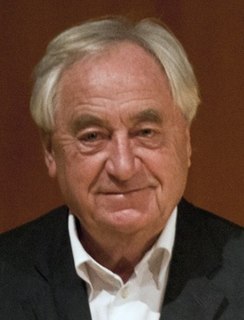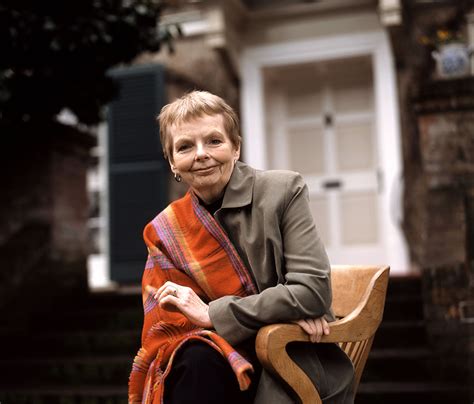A Quote by Cees Nooteboom
She had nothing to do all day ... but did it with the greatest possible speed.
Related Quotes
She smiled. She knew she was dying. But it did not matter any longer. She had known something which no human words could ever tell and she knew it now. She had been awaiting it and she felt it, as if it had been, as if she had lived it. Life had been, if only because she had known it could be, and she felt it now as a hymn without sound, deep under the little whole that dripped red drops into the snow, deeper than that from which the red drops came. A moment or an eternity- did it matter? Life, undefeated, existed and could exist. She smiled, her last smile, to so much that had been possible.
I heard police or ambulancemen, standing in our house, say, 'She must have provoked him,' or, 'Mrs Stewart, it takes two to make a fight.' They had no idea. The truth is my mother did nothing to deserve the violence she endured. She did not provoke my father, and even if she had, violence is an unacceptable way of dealing with conflict. Violence is a choice a man makes and he alone is responsible for it.
I had a babysitter when I was 12 or younger. I had a big crush on her. She was really spontaneous and fun and loved to make us sing and dance and paint. She was the coolest person in the world. I guess I did have my young love. I did everything to impress her. Everything possible. It was just ridiculous.
The tears that kept Buttercup company the remainder of the day were not at all like those that had blinded her into the tree trunk. Those were noisy and hot; they pulsed. These were silent and steady and all they did was remind her that she wasn’t good enough. She was seventeen, and every male she’d ever known had crumbled at her feet and it meant nothing. The one time it really mattered, she wasn’t good enough.
Sharp knives seemed to cut her delicate feet, yet she hardly felt them, so deep was the pain in her heart. She could not forget that this was the last night she would ever see the one for whom she had left her home and family, had given up her beautiful voice, and had day by day endured unending torment, of which he knew nothing at all. An eternal night awaited her.
although she went home that night feeling happier than she had ever been in her short life, she did not confuse the golf course party with a good party, and she did not tell herself she had a pleasant time. it had been, she felt, a dumb event preceded by excellent invitations. what frankie did that was unusual was to imagine herself in control. the drinks, the clothes, the instructions, the food (there had been none), the location, everything. she asked herself: if i were in charge, how could i have done it better?
The doctor's wife wasn't a bad woman. She was sufficiently convinced of her own importance to believe that God actually did watch everything she did and listen to everything she said, and she was too taken up with rooting out the pride she was prone to feeling in her own holiness to notice any other failings she might have had. She was a do-gooder, which means that all the ill she did, she did without realizing it.
The SEALs place a premium on brute strength, but there's an even bigger premium on speed. That's speed through the water, speed over the ground, and speed of thought. There's no prizes for gleaming a set of well-oiled muscles in Coronado. Bulk just makes you slow, especially in soft sand, and that's what we had to tackle every day of our lives, mile after mile.
Jo's face was a study next day, for the secret rather weighed upon her, and she found it hard not to look mysterious and important. Meg observed it, but did not troubled herself to make inquiries, for she had learned that the best way to manage Jo was by the law of contraries, so she felt sure of being told everything if she did not ask.
My mother was the first African-American policewoman in Seattle - recruited, actually - and she did it for only 2 years, as she did not want to carry a gun. She worked mostly on domestic disturbances. The NAACP wanted her to do it. She did not actually have the temperament to be a cop - she was very sweet. She had a Masters in social work.







































